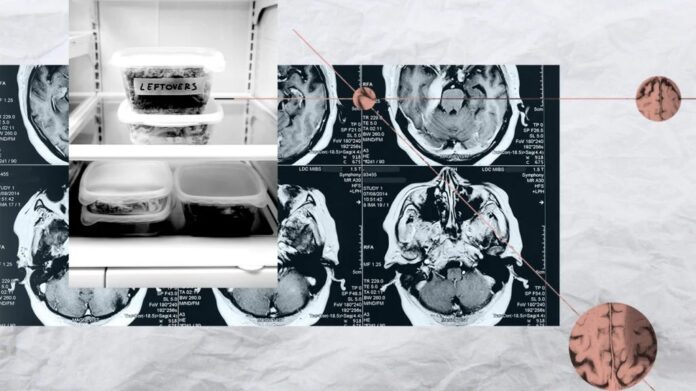
- Researchers investigated the neural pathways behind weight gain after dieting, often referred to as the “yo-yo effect”.
- In experiments in mice, they found that signaling between brain cells changes after a diet.
- They discovered that blocking a certain neural pathway led to less weight gain after these periods of calorie restriction.
- Further studies are needed to see how these findings translate to humans.
Dieting is the most common method for losing weight. However,
Studies also show that synaptic inputs to ARC neurons that control body weight change in response to food restriction.
Further research into how ARC neurons influence weight gain and food intake could aid the development of obesity treatments.
Recently, researchers examined how food restriction—or dieting—affects ARC neurons, and how this in turn affects weight gain.
They found that inhibiting neural pathways that activate these ARC neurons reduces weight gain after dieting in mice.
The study was published in
For the study, the researchers chose to study
To study these neurons, the researchers examined the brains of mice post-mortem. Some of the mice had fasted for 16 hours beforehand.
The researchers then used optogenetics, which activates cells using light, to stimulate brain regions known to signal to AgRP neurons.
They found that mice that fasted had more activity in a part of their hypothalamus known as the paraventricular hypothalamic nucleus (PVH) compared to those that did not fast. The PVH is involved in metabolism and growth.
The researchers noted that this activation lasted for several days in the fasted group who were fed a calorie-restricted diet for a further 6 days after their fast.
Next, the researchers wanted to see whether inhibiting PVH neurons could reduce food intake in mice. To do so, they silenced these neurons in a separate group of mice and tracked how much food they consumed 24 hours after fasting.
In doing so, they found that mice with inhibited PVH neurons ate around 33% less food than mice in a control group. They also regained less weight over the next seven days.
In further tests, the researchers found that once mice regained weight lost from fasting, their amplified signaling from PVH neurons returned to normal.
The researchers hope that their findings will contribute to long-term therapies for weight loss.
MNT spoke with Dr. Mir Ali, bariatric surgeon and medical director of MemorialCare Surgical Weight Loss Center at Orange Coast Medical Center in Fountain Valley, California, who was not involved in the study, about its limitations.
“[The study is about] an animal model and is looking at one particular pathway; the hunger-satiety balance is a complex interaction of hormones and neural signals and this may not be as readily applicable to humans,” he said.
Dr. Mark Guido, an endocrinologist with Novant Health Forsyth Endocrine Consultants in Winston Salem, North Carolina, also not involved in the study, told Medical News Today:
“[The study] also only shows that a neural pathway of weight regain exists, not that this information can yet be definitively used and targeted in humans to help promote weight loss.”
When asked about the study’s implications, Dr. Ali said:
“The implications of these findings are that if a specific neural pathway can be found to block the hunger signal, then a medication or intervention may be helpful in preventing weight regain or even help lose weight. Clearly, there is a lot more research that needs to be done, especially as it applies to humans.”
Dr. Guido noted that the findings add to a growing body of evidence that weight is ‘more than a math problem’, or that it is ‘more than just calories in versus calories out’.
“Most research now shows that we should think of it as a brain-related disorder, and that our brain uses several different ways to try to make us gain weight. This is why most programs of only diet and exercise don’t lead to meaningful long-term weight loss. The brain has ways to change the equation in its favor to promote weight regain.”
— Dr. Mark Guido
“Due to this newer understanding, we are beginning to treat obesity as a chronic disease with long-term medications directed at the underlying body processes, and most of our best medications for weight loss work in the brain. Identification of this new pathway opens up a new potential target for future medications,” he concluded.
Hits: 0











